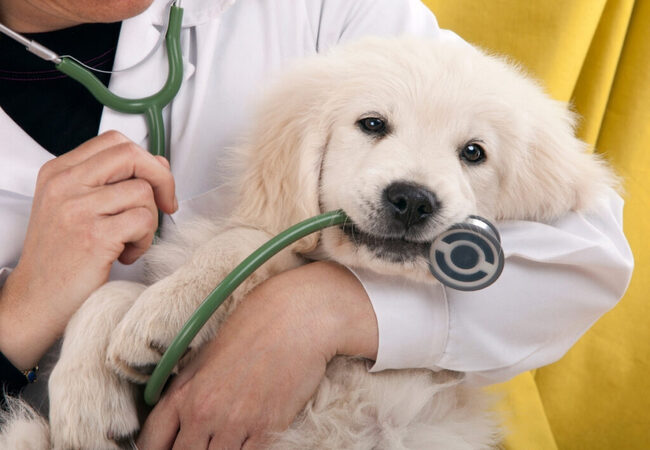2025 Vet Guide: Why Isn’t My Dog Peeing? Signs, Causes & Care 🚨🐶

In this article
2025 Vet Guide: Why Isn’t My Dog Peeing? Signs, Causes & Care 🚨🐶
By Dr. Duncan Houston BVSc
When your dog stops peeing—or pees very little—it’s a serious warning sign. It can indicate urinary blockages, infections, or organ issues. In this detailed guide, I’ll explain how to recognize urgency, understand causes, support diagnostics, and apply steps toward swift recovery, plus how Ask A Vet, Woopf, and Purrz can support your pet’s urinary health. 💧
🚨 1. Why It's a Veterinary Emergency When They Can't Pee
A dog that tries to urinate but can’t (unproductive straining) is likely obstructed—often by stones—and may face bladder rupture or toxins building up in the bloodstream. This is life‑threatening and requires immediate veterinary attention.
🔍 2. Warning Signs Not to Ignore
- Frequent squatting, little or no urine output
- Crying, discomfort, and excessive licking of the genital area
- Blood in urine (pink/red tint)
- Lethargy, vomiting, abdominal pain or distension
⚠️ 3. Common Underlying Causes
- Urinary blockage: Stones, crystals, and mucous plugs in male dogs can completely prevent urination.
- Urinary tract infection (UTI): Can cause straining, frequent small urinations, and sometimes blood in the urine.
- Bladder stones or tumors: Cause irritation, bleeding, straining or full blockage.
- Prostate disease: An Enlarged prostate in unneutered males can compress the urethra.
- Neurologic or urinary incontinence: Weak bladder control may mimic not peeing or leaking accidents.
- Kidney failure or systemic disease may reduce urine production overall.
🩺 4. What Veterinarians Do
- Physical exam, abdominal palpation for full/distended bladder.
- Urinalysis (urine output, infection, blood, crystals).
- Blood tests—kidney values, electrolytes, infection markers, prostate health.
- Imaging—X-ray or ultrasound to detect stones, tumors, prostate enlargement.
- For blockages, catheterization under sedation and possibly emergency surgery.
🛠️ 5. Treatment & Management Options
- Emergency catheterization/surgery to unblock urethra and relieve pressure.
- UTIs: Antibiotic course and urinary support diet.
- Stones: Diet dissolution, medical removal, or surgical cystotomy.
- Prostate issues: Neuter, antibiotics, anti-inflammatories, hormone therapy.
- Kidney or systemic disease: Address the underlying condition and support hydration.
- Incontinence: Medications, supportive gear, bladder training.
🏡 6. Home Support & Prevention
- Plenty of fresh water and encourage regular bathroom breaks
- Use urinary-friendly diets for dogs prone to stones or infections
- Keep clean bowels and genital area clean to reduce infection risk.
- Maintain a healthy weight and treat underlying medical conditions
- Monitor urination patterns with Purrz, and log symptoms
🛠️ 7. Using Ask A Vet, Woopf & Purrz
- Ask A Vet: Urgent vet help to triage and advise on whether emergency care is needed.
- Woopf: Medication reminders, vet appointment scheduling, hydration tracking.
- Purrz: Log urination frequency, volume, straining, accidents, and blood presence.
📚 8. FAQ
Q: My dog pees tiny amounts often—when is that bad?
If it’s frequent, small-volume urination with straining or blood, this is serious and could be UTI, bladder stones, or blockage—urgent vet attention is needed.
Q: Can female dogs get blocked?
Yes, though less common than in males. Any dog straining to pee with low output deserves immediate evaluation.
Q: How much should a healthy dog pee daily?
Typically 20–40 mL/kg/day—around 2–4 ounces per 10 lb dog over 24 hrs.
💬 9. Pet‑Parent Insight
One owner shared:
> “Our male pup started circling and squatting with little output—vet did catheterization and found stones. After surgery, he’s back to normal peeing!”
🏁 10. Final Thoughts from Dr Houston
When your dog stops peeing or strains to go, it isn’t just inconvenient—it’s a potential crisis. Immediate veterinary evaluation, diagnostics, and treatment are vital. Use Ask A Vet for prompt triage, Woopf to manage treatment plans, and Purrz to track your dog’s recovery. In 2025, you can be empowered—help your pup protect this essential function and bounce back strong. 💧🐾
Download the Ask A Vet app for urgent vet support, medication scheduling, and recovery tracking tools. 📱
AskAVet.com – Your partner in urinary wellness. 💙


